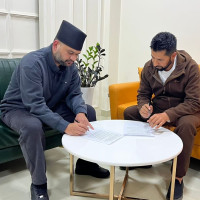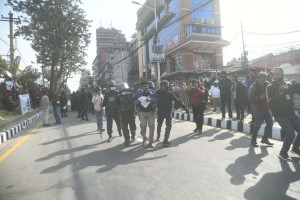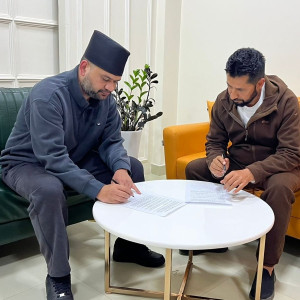Editorial
Do it already
The govt must put an end to its apathy towards Dr KC’s demands and his health
As Dr Govinda KC’s hunger strike reaches its eleventh day today, concerns about his deteriorating health are mounting. He is having difficulty breathing and is being given continuous oxygen, according to a member of the medical team attending to him. Yet the government has been maintaining an eerie silence on the matter.
It was only on Monday that some members of the parliamentary Social Justice and Human Rights Committee met Dr KC, and even that came after widespread public outrage over the intransigence of the political class. The parliamentary committee has instructed the government to address KC’s demands and implement the agreements it had reached with him during his previous hunger strikes. It remains to be seen if the government will comply.
The issue here is the continued defiance of successive governments to honour the agreements reached with Dr KC. For example, despite an agreement to impose a moratorium on opening new medical colleges in the Valley for the next 10 years, the current CPN-UML-led government has been trying to find a back-door to allow a party-backed medical academy.
This is the eighth time the orthopaedic surgeon has launched a hunger strike demanding reforms in the country’s medical education sector. It is regretful that a citizen has been compelled to repeatedly resort to a form of protest that is detrimental to his health in order to pressure the government to honour its past deals and address issues that serve the greater public good.
Dr KC’s demands have resonated with a sizeable section of the population and have garnered wide support. Resident doctors at the Tribhuvan University Teaching Hospital (TUTH) have stopped providing outpatient services to exert pressure on the government to address the demands. Other associations of medical doctors have also launched various forms of protest, or are preparing to do so, to show solidarity with Dr KC. A statement issued by 15 prominent civil society members and academics has expressed concern over the government’s indifference to KC’s demands and asked it to hold talks with him to resolve the issue.
There have also been protests against some of Dr KC’s demands or the way he is making them. His strike has affected the normal functioning of the TUTH. Concerns have also been raised about one of his new demands, namely the impeachment of Lokman Singh Karki, head of the Commission for Investigation of Abuse of Authority (CIAA), for interfering in the country’s medical education sector.
As we wrote in our editorial on July 12, whether individuals should demand impeachment of the head of a constitutional body and that too through a hunger strike is questionable. But the important thing is to not be distracted by one debatable point. The larger issues about the country’s medical education that Dr KC has been raising for the last four years deserve serious attention. And his steadfast fight against a “medical mafia”, which has had huge influence on institutions like the Nepal Medical Council and the TU Institute of Medicine and which is distressed about KC’s strikes leading to regulations that will stop its unbridled profiteering, commands sincere respect.




 6.12°C Kathmandu
6.12°C Kathmandu












%20(1).jpg&w=300&height=200)

